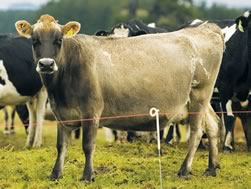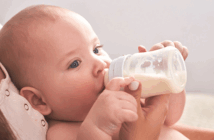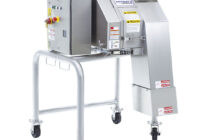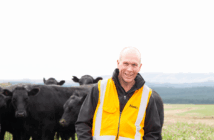By Carol Barnao
In regulating the manufacture and sale of food in New Zealand, we are often faced with the challenge of striking a balance between ensuring the safety of our food while acknowledging consumers’ right to choose.
Making it possible for people to buy raw – untreated – drinking milk at the farm gate is one of these instances.
The Ministry of Agriculture and Forestry is currently consulting on the rules for selling raw drinking milk from farmer to consumer, to ensure that we get this balance right.
Farm-gate sale of raw milk is a long-standing tradition and both the current and previous Ministers for Food Safety have stated that the law will still provide for this into the future, in some form.
However, while there is commitment to carry on allowing people to buy limited quantities of raw milk for themselves or their family, it is important that we make sure things are in place to manage some of the very real food safety concerns associated with consuming this product.
Raw milk is a high risk food because it hasn’t undergone any heat treatment (such as pasteurisation) or other treatment that would destroy illness-causing bacteria.
If raw milk is stored improperly, and even if it is stored at refrigeration temperatures, some bacteria, like illness-causing Listeria, are still able to grow.
While most outbreaks of disease linked to drinking raw milk have occurred overseas, we have had several outbreaks in New Zealand – for example Campylobacter caused an outbreak associated with primary school children drinking raw milk while visiting a dairy farm.
While healthy people’s immune systems can fight small numbers of bugs, pregnant women, young children, frail elderly and those with weakened immune systems (like diabetics and people with a current or recent illness) are at greater risk from succumbing to a foodborne illness because of any bacteria present in their food.
As such we recommend that these consumers avoid drinking raw milk.
The current Food Act 1981 permits the restricted sale of raw drinking milk by allowing dairy farmers to sell a maximum of five litres from their farm to people for their own personal use or for their families to consume.
The Animal Products Act 1999 requires farmers selling raw milk ‘at the farm gate’ to operate under a Risk Management Programme (RMP) that specifically covers this activity.
The Food Standards Code requires farmers to give information to people buying raw milk stating that it is not pasteurised and advising on how to store and use the milk.
To ensure we have the best regulatory framework around these types of transactions going forward, MAF is asking New Zealanders how we should continue to allow the sale of raw milk at the farm gate.
Our discussion document – currently out for consultation – proposes three options, with the third option preferred by MAF:
1.Maintain the current legal position.
2.Make limited amendments to conditions of sale and retain the requirement for an RMP
3.Make limited amendments to conditions of sale and exempt farmers from an RMP subject to health and hygiene requirements and keep records about sales.
I want to stress that the current proposal does not include providing for the sale of raw milk for drinking on a more commercial scale.
This is a much more complex issue than farm gate sales and it would be associated with a much greater level of risk than the current proposal. Neither does the proposal consider prohibiting the sale of all raw drinking milk.
Some people might be aware that MAF is reviewing the Dairy Industry Restructuring (Raw Milk) Regulations 2001 made under the Dairy Industry Restructuring Act 2001.
These regulations enable independent dairy processors to purchase a limited amount of raw milk directly from Fonterra and set the default sale price for that milk.
These issues are not related to the review of farm gate sales of raw drinking milk.
Closing date for submissions on the proposal is 5 December, 2011. Details on how to submit your comments can be found on our website at: http://www.foodsafety.govt.nz/elibrary/industry/farm-gate-raw-milk-sales/index.htm
Carol Barnao is a member of the Foodtechnology Advisory Panel and deputy director-general of the Ministry of Agriculture and Forestry Standards branch.
Before this, she was NZFSA director of the Assurances and Standards Group which provides assurances that New Zealand food and related products are safe and suitable to eat. Carol has a strong background in the dairy industry. Before joining MAF 12 years ago, she was for 18 years involved in the dairy industry. She has held various positions with the New Zealand Dairy Board. She is a food technologist and a fellow of the New Zealand Institute of Food Science and Technology.
If you have questions for Ms Barnao or suggestions on areas of interest in her specialist area, e-mail editor Mike Bishara at [email protected], reference Carol Barnao.






























































































